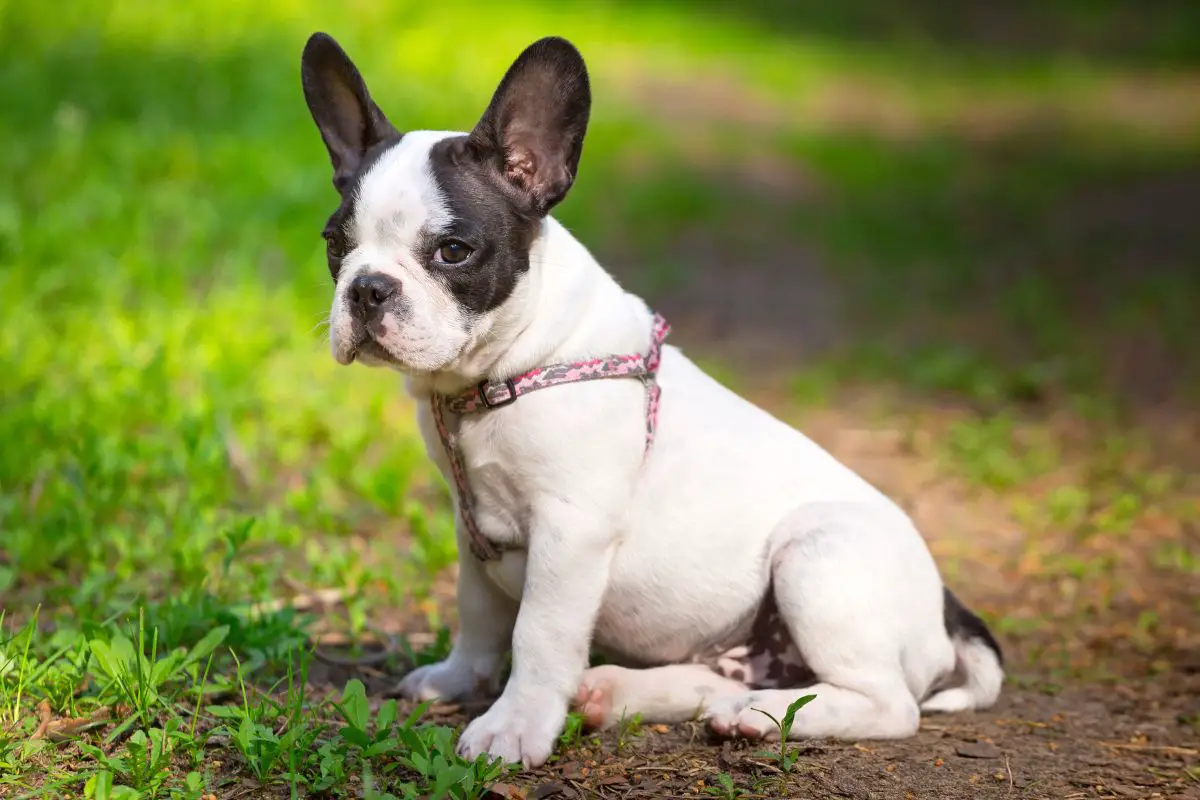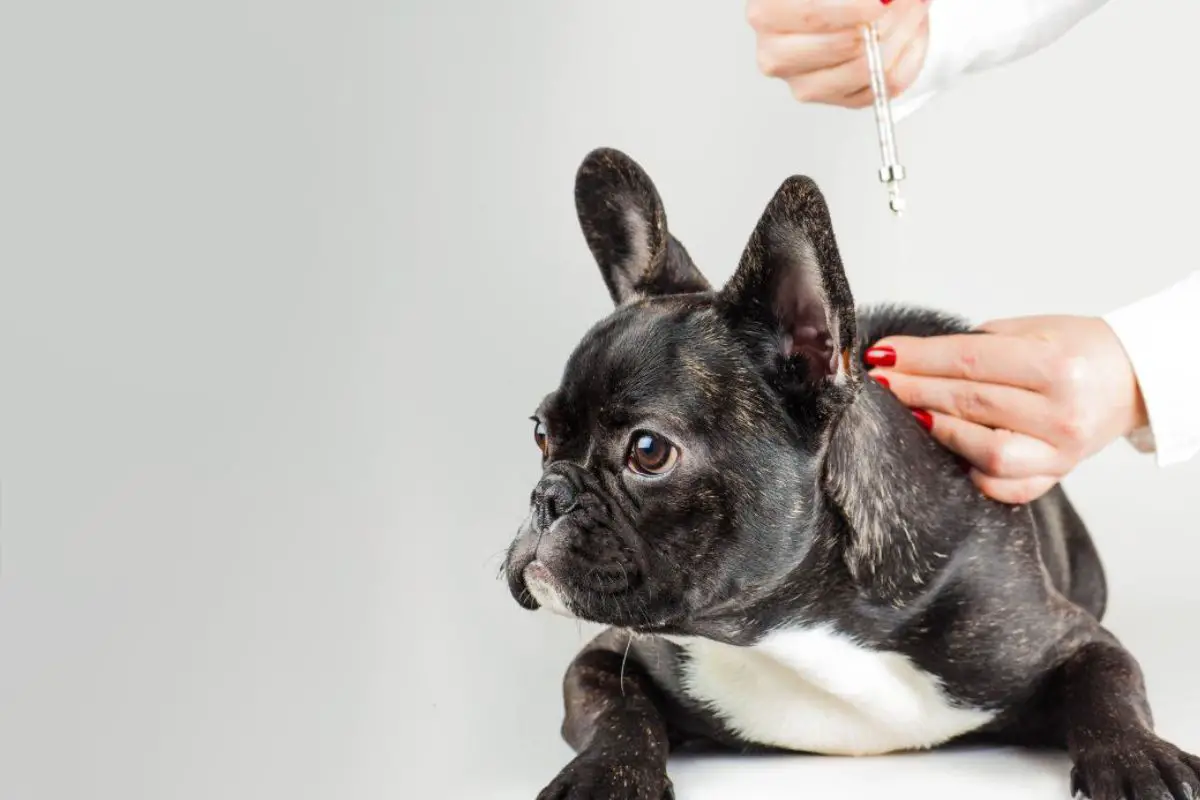One of the first things you need to do when you are a brand new owner of a beautiful French bulldog is get them their vaccinations. You will need to check with a vet about what vaccinations they have had and what they still need.
This can be a worrying time for both you and your little furry friend. You’ll likely be worried about potential side effects and any repercussions. Luckily though, most side effects from vaccinations (if any) tend to be very mild.
So, you and your dog can happily go and get the vaccinations without much to worry about. If anything happens, your Frenchie might get a mild temperature and possibly a little lump from the area where the vaccination took place.
However, in very rare cases, your Frenchie could react due to allergies or develop an abscess. Of course, you’ll need to know more about this – so we’ve got you covered.
We’ve written a complete guide to French bulldog vaccinations, so if you’re concerned, then we recommend you read on to learn more!
What Vaccinations Does My French Bulldog Require?

French bulldogs should follow the same vaccinations schedule as pretty much any other dog, and this could vary from state to state or even country to county.
However, we’ve included the most common vaccinations that your French bulldog might need below:
- Rabies
- Parvovirus
- Distemper
- Adenovirus Type 1
- Adenovirus Type 2
- Bordetella
- Lyme disease
- Leptospirosis
- Parainfluenza
If you have a little Frenchie puppy and it has not had its essential vaccinations just yet, then it’s a good idea that you keep them quarantined from any other animals until they have them completed.
This is because they are extremely vulnerable to lots of different illnesses that they haven’t yet developed immunity to.
How Old Does My Frenchie Need To Be For Vaccinations?
The age in which your Frenchie receives their vaccinations will depend on what the vaccine is and some of these may come in a number of different shots.
However, generally speaking, when your puppy is six weeks old, they can start to have a series of vaccinations like distemper and parvovirus – but they will need to wait until they are sixteen weeks old to have their first rabies vaccine.
The rabies vaccine will have its own state regulations but most times the rabies shot will be one singular vaccine.
When it comes to a shot for lyme disease however, your Frenchie will need to be about nine weeks old and they will need to have two separate shots to fully protect them against this disease.
It is also around this age that your Frenchie can undergo shots for leptospirosis which is a type of blood infection caused when your dog’s mucous membrane comes into contact with infected animals’ urine or if they are bitten by an infected animal.
Finally, a canine influenza vaccine can be administered at between six and eight weeks old and is usually completed in two shots around a month apart from one another.
Why Does My Frenchie Need These Core Vaccinations?

The reason that your furry friend needs these vaccinations is because it protects them against serious diseases and illnesses in the future. If they are able to develop somewhat of an immunity, their bodies are in better shape to fight against serious symptoms.
Take rabies for example. As far as the medical community is currently aware, there is no cure to the rabies virus, and if your dog contracts rabies, they become a danger to both themselves, other animals and other people.
On top of this, some diseases are highly infectious between other dogs and it can cause very significant problems with their quality of life. Distemper for example can act very similarly to rabies but it can also cause things like:
- Coughing
- Sneezing
- Loss of appetite
- Extreme lethargy
- Seizures
- Pus in their eyes
This disease can even affect your Frenchie’s personality and their nervous system which can lead to erratic behaviors.
The adenovirus shots help to fight against canine hepatitis, which is actually not too dissimilar from human hepatitis because it is a virus that targets the liver.
Type 2 helps to protect your furry friend from kennel cough which is a significant respiratory illness and it can cause similar symptoms in dogs as the common cold or influenza can with humans.
Parvovirus on the other hand can lead your Frenchie to exhibit symptoms like vomiting, fever and even diarrhea that can cause bleeding.
To put it simply, these vaccinations are extremely useful in trying to reduce the likelihood of your dog developing these deadly symptoms and also reduces their likelihood of passing on the disease.
What Are The Common Side Effects Of These Vaccinations?
As we mentioned earlier, probably the most common side effects, if there are any, will be a slight temperature and soreness in the area where the shot took place. Your Frenchie might even be a little more tired than normal.
This is because their body is getting used to fighting against the illness and their body is building an immunity. This lethargy does not usually last very long, so if you notice this symptom, they will likely be at their very best in a few days.
If your Frenchie develops a lump in the area where they had the shot, it’s best not to panic and try to leave that area alone for a while. Within two days, this lump should reduce and go away.
However, if the lump gets worse or does not go down after around four weeks’ time, you should consult with your veterinarian as soon as possible for medical advice.
In the rare circumstance that your Frenchie develops a serious reaction, usually due to allergies, such as anaphylaxis, this will usually exhibit itself in around two to three hours after the vaccination occurred.
If you notice anything serious, you need to call the veterinarian or take your Frenchie to the veterinarian immediately for treatment.
What Happens At The Veterinarians On Vaccination Day?

You should already have some documentation from the breeder or rescue shelter about your Frenchie’s previous shot history. You will need to hand this over to the vet for reference.
Before the vet performs any vaccinations, they will give your furry friend a general check up and inspect them for any illnesses. They will also check their weight, height and overall health.
The vet will then explain to you everything about the vaccination schedule that your dog will undergo over time and tell you what to expect. They will then administer any necessary vaccines in a painless way.
Are Shots Expensive?
If you got your Frenchie from the shelter, they have likely already paid for and conducted the vaccinations, however some may charge a small fee. Luckily, shots aren’t too expensive so you should be okay financially.
Final Thoughts
It’s important that you get your Frenchie fully vaccinated, so hopefully this complete guide to your French bulldog’s vaccinations has helped you know what you can expect.



